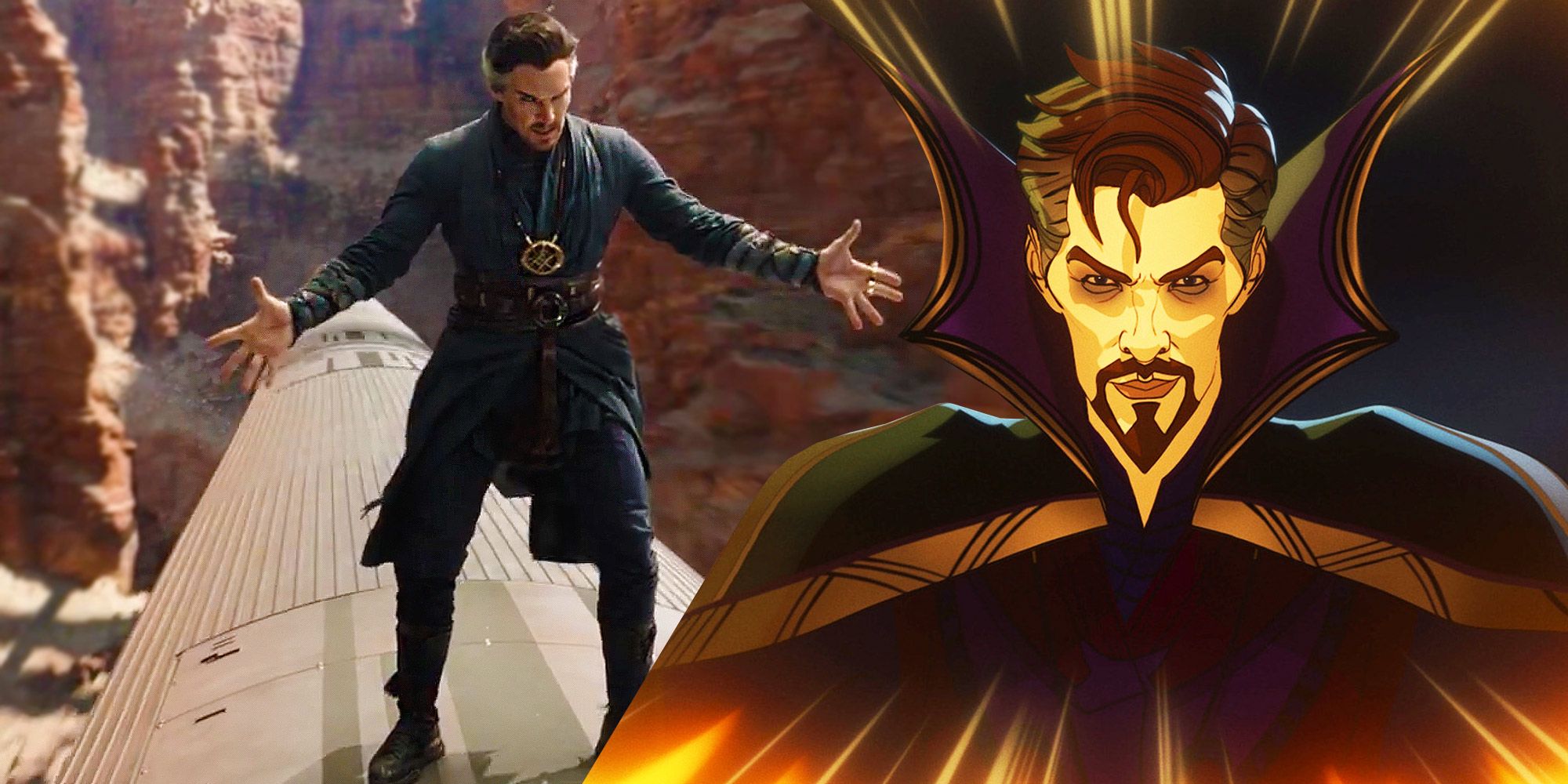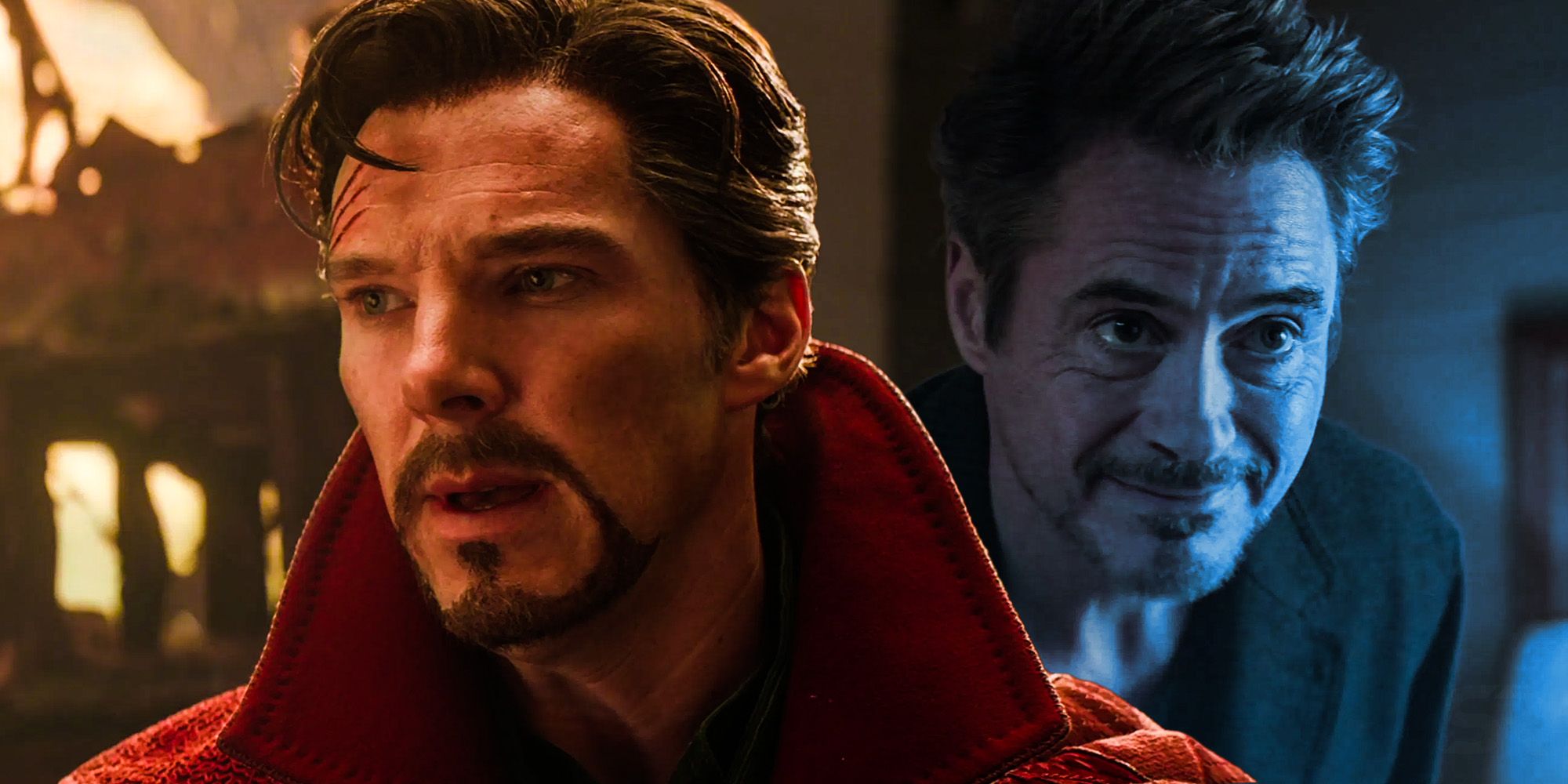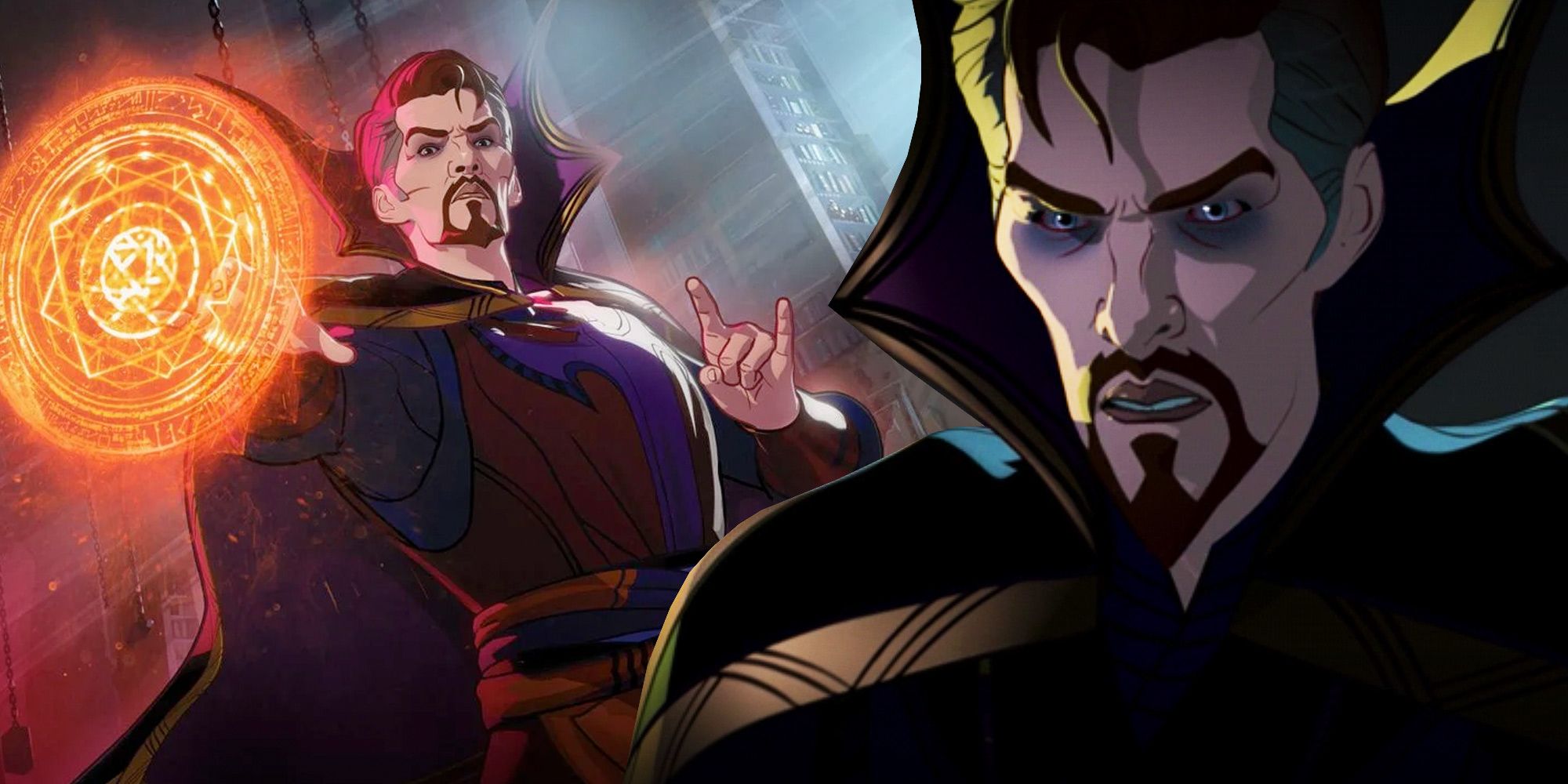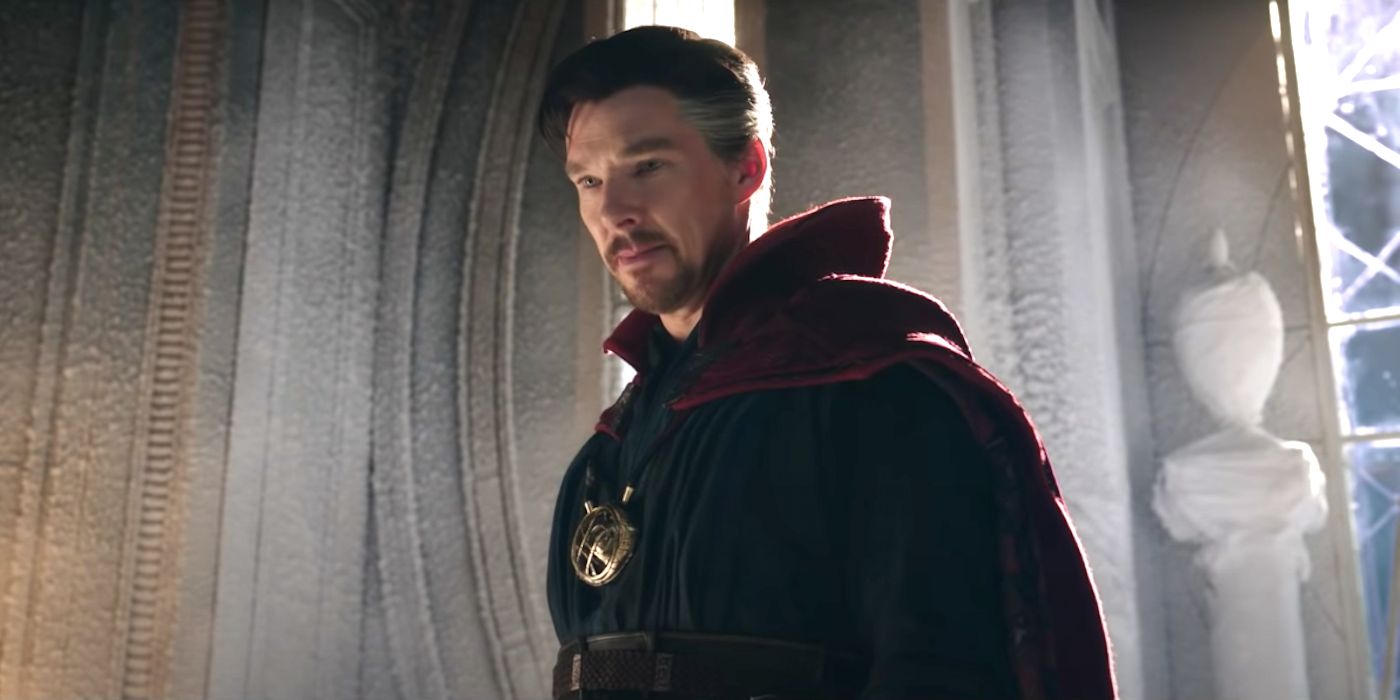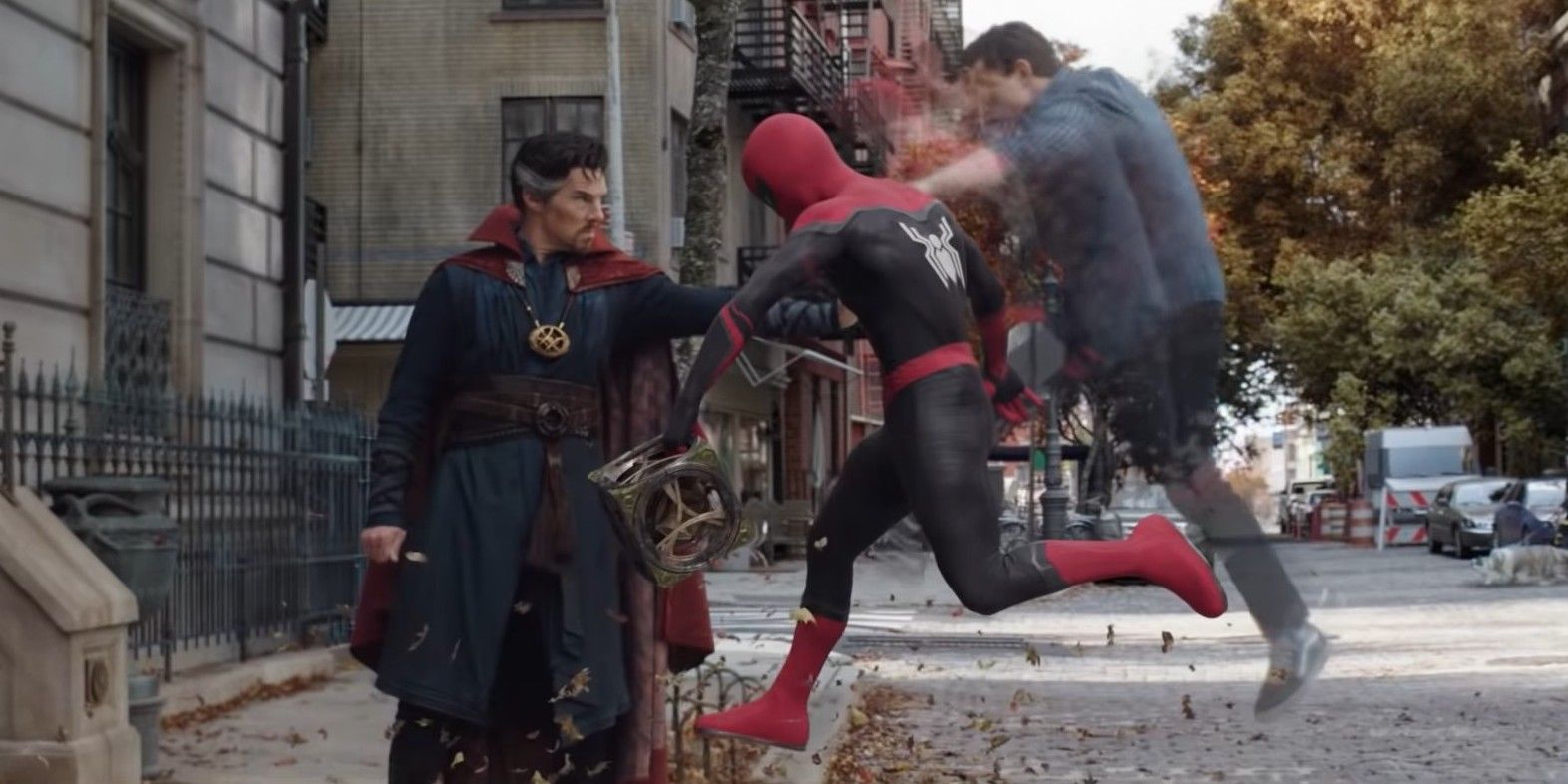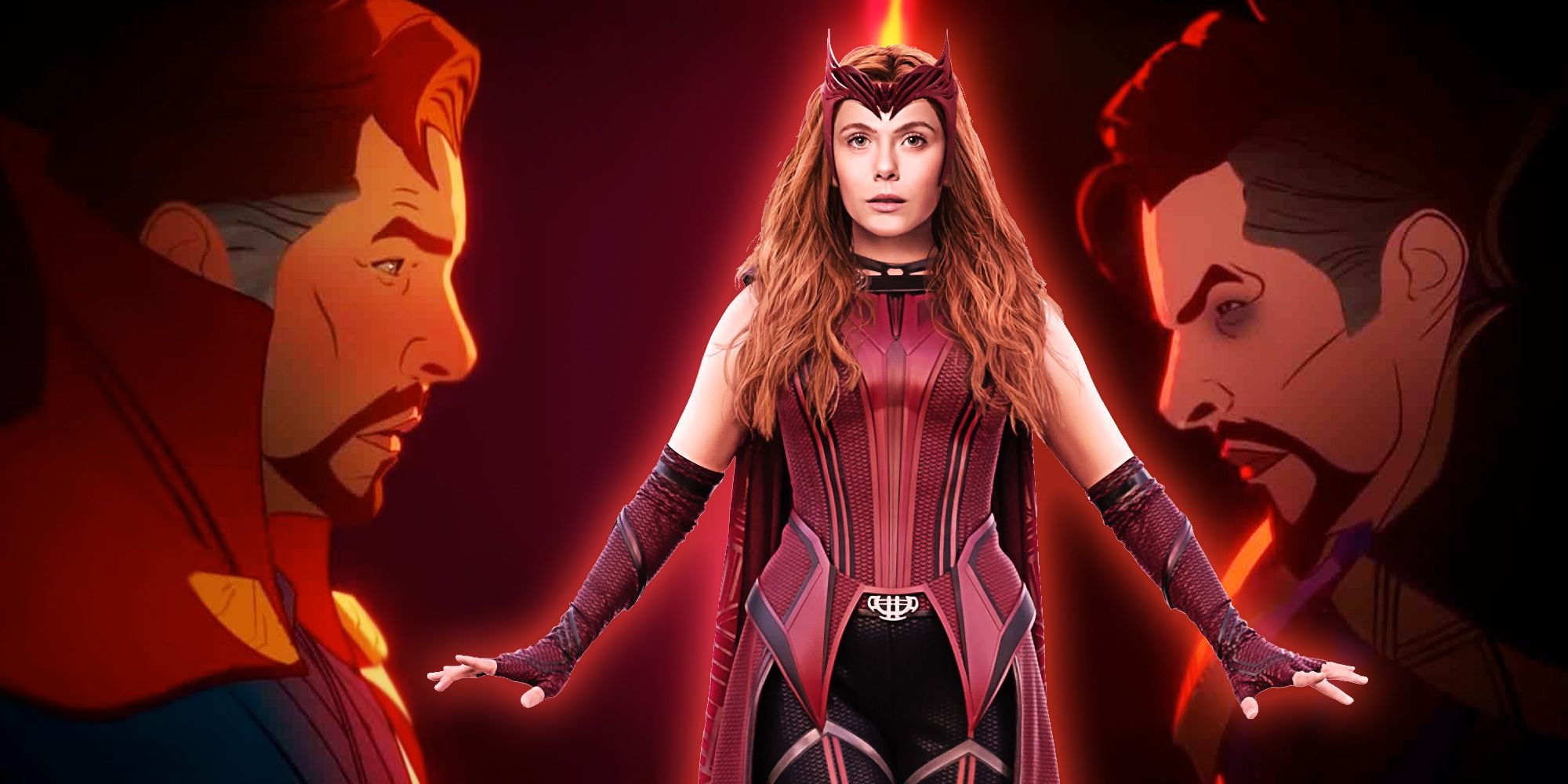Warning: This article contains spoilers for Spider-Man: No Way Home.
There's some evidence in Spider-Man: No Way Home to support the theory that Doctor Strange was evil the whole time. Benedict Cumberbatch once again portrays Doctor Strange in the MCU movie, but he seemed to not quite be himself in this entry. Ever since the first trailers debuted for Spider-Man: No Way Home, the actions of Doctor Strange have seemed off, especially his eagerness to help Peter Parker with a spell that has such dire consequences.
Beyond that, his lack of empathy for the villains collected from the multiverse seems particularly callous for someone that's supposed to be an Avenger. Furthermore, Strange feels distant, flippant, and secretive throughout the film, with far more going on behind-the-scenes than the audience is ever privy to as there are no scenes that feature only Doctor Strange or his perspective on what's happening, deepening the mystery of what's really going on with him.
Further expansion on the evidence that Strange was not himself in Spider-Man: No Way Home is the entire sequence of executing the spell itself, one which traverses the known and unknown parts of the multiverse. Wong warns Strange about using the spell (saying "Don't cast that spell" in a line from the trailer that's not in the final film), but Strange does so, anyway, as if it were a simple thing. The lack of explanation to Peter before casting the spell, particularly with Peter interrupting it, and Strange's lack of control over what he's doing, suggests that something is amiss with the good doctor.
Doctor Strange Has Always Been Arrogant & Competitive
Doctor Strange has always been a somewhat curmudgeonly character, filled with a brash arrogance that stems from his early days as a successful surgeon. In many ways, this ties into his character being somewhat power-hungry, which can have devastating results for any character. After his car crash in Doctor Strange, he seeks out ways to heal himself and when exposed to the possibilities of what he could learn from the Sorcerer Supreme, he becomes obsessed with learning and mastering those abilities. He ultimately uses his newfound gifts for good, but even the slightest detour from that could've spun him in a different direction.
He is seen again in Thor: Ragnarok where he helps Thor and Loki find their father, Odin, although he tortures Loki a bit with a Sling Ring portal (another hint at Strange's penchant for a lack of sympathy toward villains). His last two appearances in Avengers: Infinity War and Avengers: Endgame show him to be combative with Tony Stark, jockeying for position over ego, although he eventually settles into a more heroic role in giving Stark the answer he needs to finally beat Thanos. He's ultimately always done the right thing, but his being a rebel and tendency for arrogance could easily turn into Doctor Strange heading down the wrong path–and there's already precedent for it in the MCU.
The MCU Already Teased How Easy Evil Doctor Strange Would Be
Doctor Strange going evil has already been explored in the MCU in the Disney+ series What If...? season 1 after Christine Palmer is killed in his fateful car accident instead of his hands being mangled. The alternate history of that story finds Strange still seeking out the mystical arts, but becomes obsessed with reverting time to save Palmer. Strange attempts to save her multiple times, but it always ends in her death, a result he cannot accept. He begins absorbing other magical beings in order to become an all-powerful sorcerer, hellbent on his mission to save Christine with no regard for the consequences. Eventually, he becomes "Strange Supreme" and battles his good self, whom he absorbs to gain enough power to save Christine. However, she rejects him in his evil form; thereby showing he's destroyed the universe for nothing and leaving him to grieve alone in a small pocket of what's left. While this is only one reality, it's a perfect insight into how far Strange could go if faced with such a dilemma in the current MCU, which is a pathway to total and complete evil.
Doctor Strange's No Way Home Behavior Feels Off
For someone who became the new heir to the title of Sorcerer Supreme by the end of his first solo film, Doctor Strange seems like he's lost his touch in Spider-Man: No Way Home. Wong is the new Sorcerer Supreme, as he took over the role when Strange was blipped for five years in Avengers: Infinity War. Strange helped out in the final battle of Avengers: Endgame, but his magical prowess in No Way Home doesn't have his usual precision and focus. Strange's attitude feels almost rebellious, particularly toward Wong when he warns Strange of the dangers of casting it. It's odd that Strange so quick to mess with the multiverse when he just got done saving half of the universe. His actions don't add up, and his lack of humility in refusing to admit that he allowed the spell to be tampered with from the beginning suggests he's not quite himself.
It's also odd that he puts the teenage Peter Parker, of all people, in charge of rounding up a bunch of multiverse villains on his own. He could enlist more sorcerers to help, or other Avengers, but he doesn't, and his decision not to do so makes it appear as though he's trying to keep the mishap a secret. It begs the question of whether or not Doctor Strange perhaps had ulterior motives in erasing knowledge of Spider-Man, let alone opening up a multiverse to allow villains to seep in through the cracks.
Doctor Strange's Attitude To Death Is Very Suspicious
When the villains from the multiverse begin to appear, Strange not only forces Spider-Man to go round them up, but he's ready to send them to their deaths immediately. As Spider-Man meets these new villains for the first time in No Way Home, finding that they can be redeemed or saved, potentially saving the day in multiple timelines/multiverses, Strange is adamantly against it. It prompts a battle between Strange and Spider-Man that feels more like a battle between good and evil than a simple moral misunderstanding.
Having just saved half the universe, one would think that Strange would be open to saving more lives, but in this instance he simply wants them gone at the push of a literal button. His stance on the issues of sending these people to their deaths is never rationalized as a greater good, but more like a problem he just doesn't want to deal with (or, again, a secret he doesn't want to get out). Instead, Doctor Strange demanding that the villains die in Spider-Man: No Way Home feels like a tyrant issuing death sentences without a proper day in court. Strange is so callously dedicated to sending everyone to their deaths and erasing his poorly executed spell, right up until the end when he finally administers it successfully, that he comes off as a desperate man trying to hide his reckless mess, rather than a hero trying to help a friend.
Doctor Strange 2's Trailer Sets Up Evil Doctor Strange
The biggest hint, of course, of an evil Doctor Strange comes in the form of the end credits scene, a teaser for Doctor Strange in the Multiverse of Madness. Strange seen first enlisting the help of Wanda Maximoff, a.k.a. Scarlet Witch, who herself dabbled in the dark arts and caused great harm during the events of WandaVision. But the final shot reveals Strange facing off with an evil version of himself that looks strikingly like Strange Supreme from What If...?. This evil version of Doctor Strange says, "Things just got out of hand," which could certainly be part of his broader explanation to the "good" Strange about what has transpired to bring about the evil version. This teased scene from the sequel will more than likely hold the keys to Strange's behavior in Spider-Man: No Way Home, possibly alluding to him being under the influence of dark forces all along, of which he may not have had any control over. All will (likely) be revealed when Doctor Strange in the Multiverse of Madness is released on May 6th, 2022.

